However good a Constitution may be, if those who are implementing it are not good, it will prove to be bad. However bad a Constitution may be, if those implementing it are good, it will prove to be good - Dr. B R Ambedkar
26th November 1949 - this was the date when India candled its shape as the sovereign, democratic and republic country after the proclamation of the longest written constitution on earth, the Indian constitution. The constitution which is also known as the supreme law of India holds the root of the vast diversified nation on the planet and that root was seeded, watered and drafted by Dr. Bhimrao Ramji Ambedkar who has been celebrated as the father and the Chief architect of the Indian constitution.
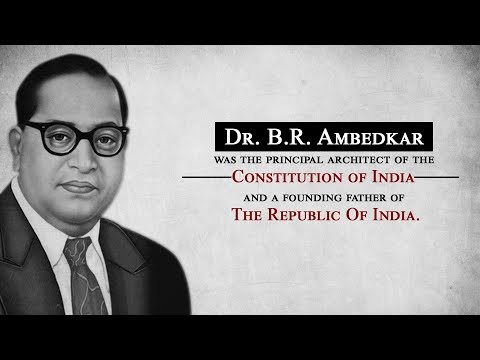
India hasn't framed its borders, enacted its laws, derived its powers and duties until Independence. Most of the Indian subcontinent was under the rule of British from 1857 to 1947 and throughout the rule, India had divided with multiple princely states. After the country was declared independent in 1947, it remained under the dominion of British rule till 1950 and that was an end for the century-long British rule after the proclaimed constitution took into effect on 26th January 1950 by shaping India as a sovereign, democratic and republic nation.
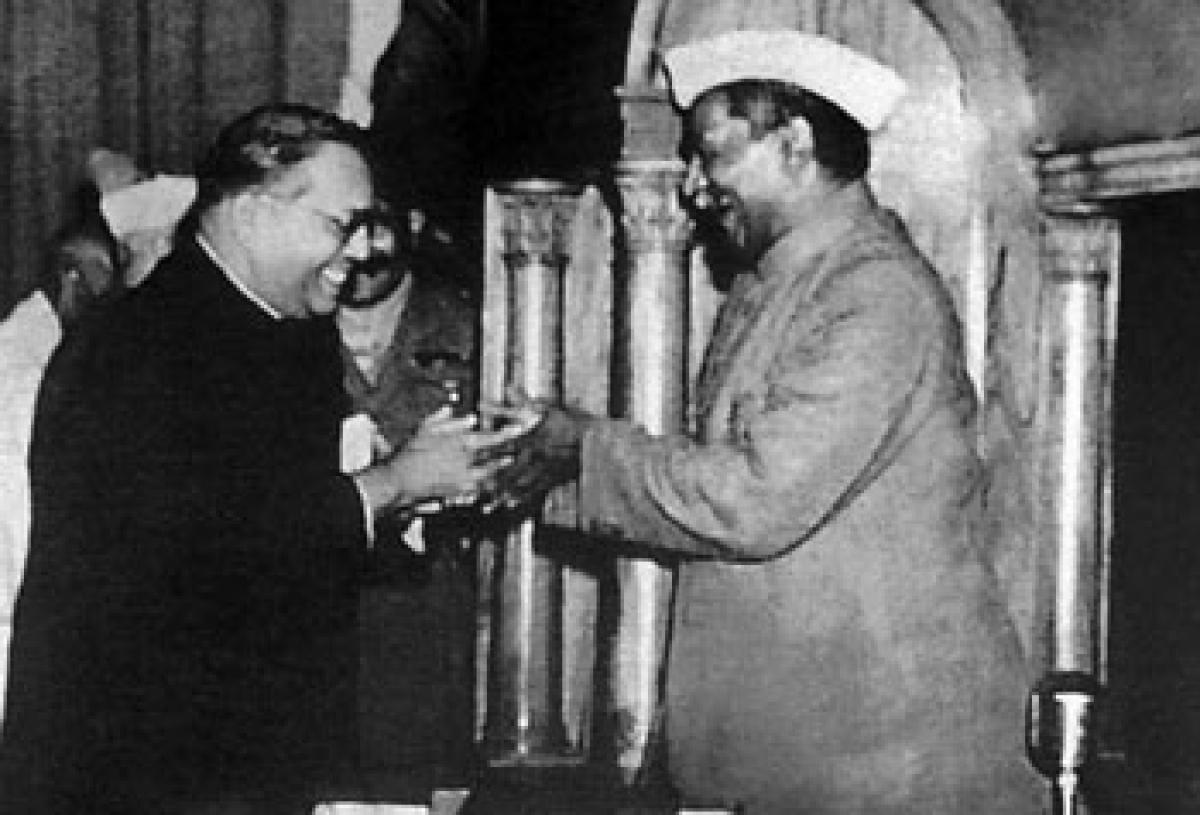
By replacing the Indian Independence Act 1947 and Government of India Act 1935, the constitution has upheld the constitutional supremacy by laying down the framework on the fundamental political code, procedures, structure, powers and duties of the government bodies and institutions and it prescribes the basic and fundamental rights and duties entitled and exercised by the citizens. The constitution grants citizens with justice, equality, liberty, and fraternity.
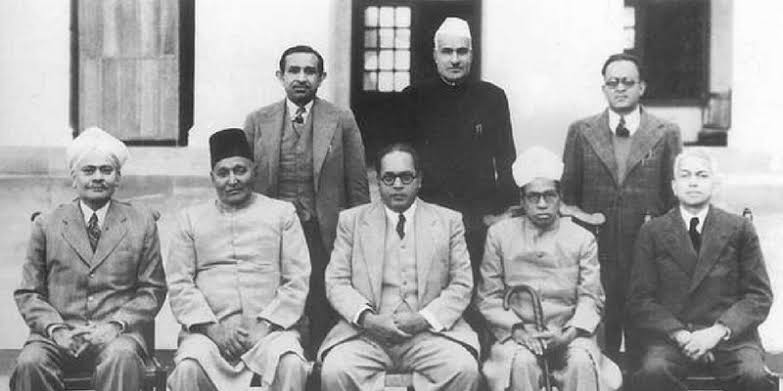
Today - 26th November 2019, marks seventy years since we proclaimed ourselves as a republic, socialist, secular, democratic and sadly, embarrassingly, the candle that we have lighted through our constitution has been melting and our proclamation has been staying as the words to recall the constitution. In the last seven decades, we have been unleashing the packages of the nightmare in the dreams of the constitution. By the time we endure our constitution as the longest one on earth, we are somehow presenting the failures to the standards and to our proclamation. Injustices at the peak while the justice beneath our foot, inequality soars high while diversity and equality steep low, secularism bows down to the preach of non-secularism and the republic were muted by authoritarianism.
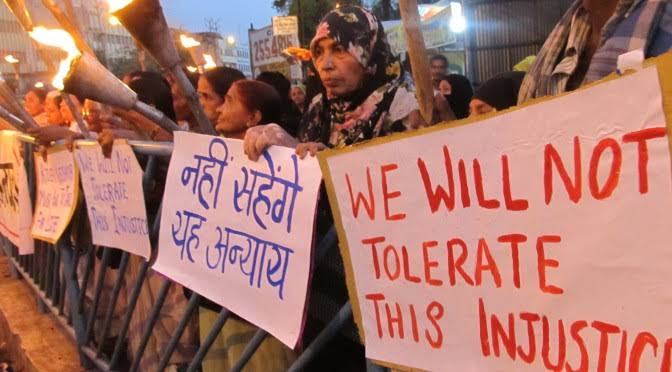
Throughout its ages, the constitution has been let to rest during the times of war, emergency period, curbing of voices, crushing the rights of the minorities, violating the fundamental rights, minimalizing the freedom through majoritarianism and regardless of the power, the ruled and ruling Central governments had observed the party-centric governance in the place of common centric governance. While the constitution carried the words of the sovereign, democratic and republic, the words 'secular' and 'socialist' were added to the preamble of the constitution in 1976 during the emergency. India is known for its diversity and so for its issues, for its communal clashes and differences, for its upsetting injustices that had black painted our constitution.
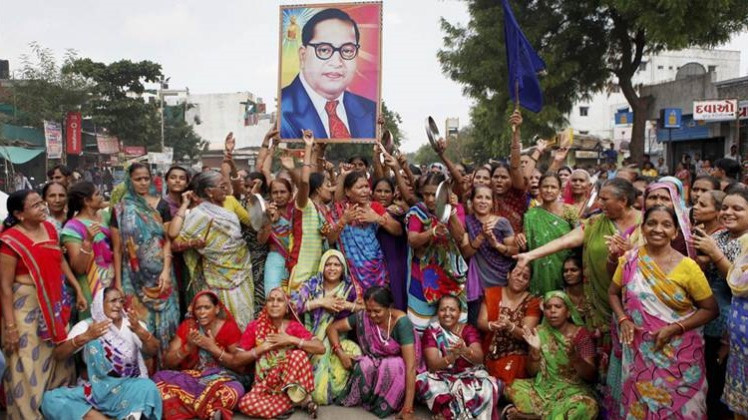
The states of India have been nested with complicated issues competing for one another but the states share the common grounds on the political uncertainty, possessing a threat for the voices of the minorities, backward people and causing injustices to the lives of the activists who were critics of the ruling governments in the state. The political parties are words using the proclamation of the preamble which questions the executive and legislature branches adopted in the constitution. The failure of the government institutions in abiding by the constitution had caused distrust and led to the fierce protests across the nation. The whole body of India has been paralyzed by its own heart which pumps out the authoritarianism that overrules the inclusiveness. Each state has its uniqueness in the issues that either remain unanswered or been poured by the political parties to play the drama under the claim of respecting the constitution.
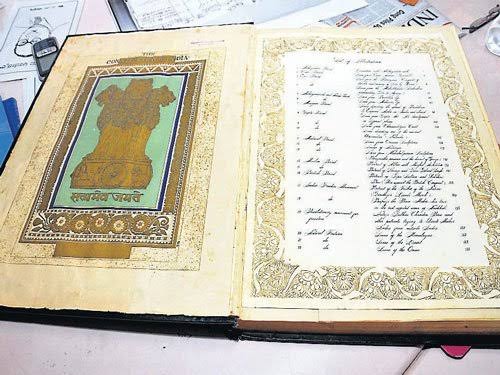
Our constitution adds more pride to our nation as it was the longest written constitution that has a mixture of influence from the constitutions of about seven developed countries which had made the system as 'Constitutional parliamentary socialist secular republic'. It was successfully drafted by the Constituent Assembly that was headed by Ambedkar while about 12 intellectuals from various backgrounds played a key, vital role in finalizing the draft that took its effect as the books of democratic, socialist, secular and republic India. With about 1,45,000 words, Indian constitution is the second-longest active constitution in the world after the constitution of Alabama and all these words were scripted with the golden meaning of building, enjoying and celebrating secular, inclusive, respected India that sends solidarity to its citizens regardless of the caste, religion, sex, color, and creed. What else it needs than respect? What else it ask than to respect! The original 1950 constitution is preserved in a helium-filled case at the Parliament House in New Delhi and so does the words, proclamations, and preamble. Its been seventy years and still, we are backtracking towards failure which makes India tough to proclaim itself as an independent, secular, democratic, republic and socialist nation.









Comments